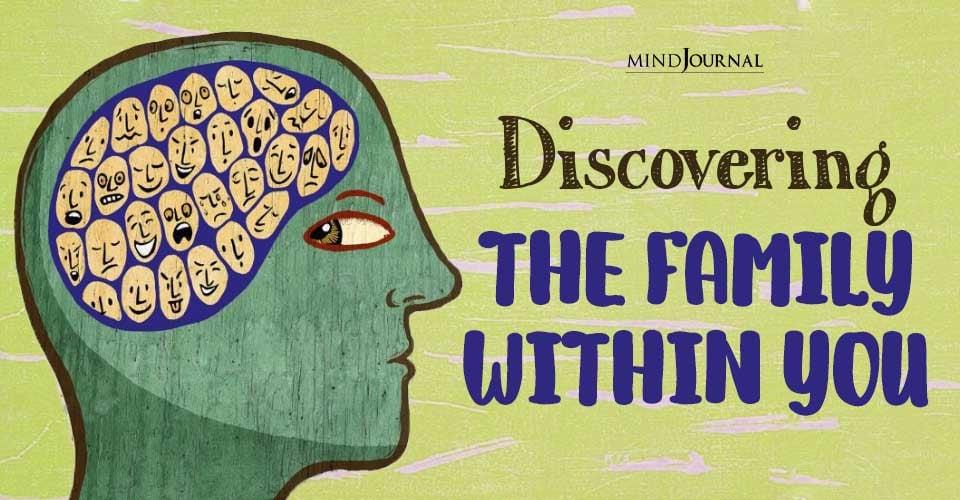If you’ve ever wondered how to improve your luck, you’re not alone. While some may believe luck is purely random, there are actually ways to boost your chances of good fortune.
Let’s explore some simple yet effective strategies on how to enhance luck and increase those lucky breaks you’ve been waiting for.
KEY POINTS
- There are stark differences between those who believe they are lucky and those who think they are unlucky.
- Steps you can take to increase your luck include broadening your social circle and saying “yes” more often.
- People considered “lucky” may be more resilient in life.
Are you lucky?
Personally, I’ve always felt lucky. Throughout much of my life, doors of opportunity swung wide open for me.
Until they didn’t.
There were many times when doors would slam shut, and I would find myself grappling with calamity. Had my luck run out?
I wasn’t sure, but every time a door closed I would keep an eye peeled for an open window. And upon seeing one, I would use it as an alternative exit to navigate a new path.
Are some people lucky? Are others plagued by bad luck? I decided to find the answer.
Related: 25+ Lord Krishna Quotes That Will Revolutionize Your Perspective on Life and Love!
Luck Throughout the Ages
Throughout history, people have clung to totems for good luck. The ancient Egyptians wore scarabs for good fortune and placed amulets into tombs to speed the journey to the next life.
Who among us has not wished upon a falling star, searched for a four-leaf clover, knocked on wood, or tossed coins in a fountain hoping it would usher in a good fate.
Haven’t we all made a wish for the future while blowing out birthday candles? My family would serve pork on New Year’s Day as an omen of fortune.
And remember the lucky rabbit’s foot that once hung on keychains and car mirrors? Countless cultures believed that the left foot of the rabbit was imbued with magical powers.
The Aztecs worshiped the rabbit and his foot in particular. The Chinese associated rabbits with the blessing of fertility. One can’t help but think of this long-held tradition and feel sympathy for the poor rabbits who apparently had no luck at all.
Republican Presidential candidate John McCain was known for his sacred rituals, for carrying a lucky compass, a lucky feather, and a lucky penny.
Democratic consultant James Carville was well known for courting political fortune by wearing the same underwear for many days at a time. Fierce competitors both—could luck simultaneously rain down on both McCain and Carville? How would that work?
Good luck and bad luck appear to be fiercely held beliefs. A Gallup poll revealed that 72% of the American public admitted to possessing at least one good luck charm.
What Is Luck?
Does luck exist? Where is the evidence?
By definition, luck is a whim of chance. It is defined as intangible, something outside of personal control. Yet social scientists view it differently.
They see luck as the result of personal actions, an alchemy of openness to new experiences and a penchant for chance-taking.
Stephen Mark, a British academician, found that those who view themselves as lucky tend to behave much differently than those who see their lives as plagued by bad breaks.
Mark observed that lucky people have this in common: They regularly change up their routine, vary their environment, and mix with a broad swath of people. He determined that this positive, go-getter attitude results in new experiences and the enthusiasm to take advantage of them.
In short, he found the more varied one’s routine, the more chance encounters one will have. The greater the opportunities one is exposed to, the greater potential for good outcomes, which many view as luck.
Steve Jobs, the iconic founder of Apple, once said, “The harder I work, the luckier I get.” He attributed his good luck to a trusting of his gut—to intuition. But in reality, was his success dependent on luck, hard work, or on something more?
Jobs took enormous personal gambles, underscoring Mark’s theory that lucky people take risks. Jobs dramatically veered off a traditional career path by dropping out of school and taking up calligraphy, not the common roadmap to success.
Best known for his longitudinal studies of good and back luck, academician and author Richard Wiseman—who incidentally began his career as a professional magician—agrees that luck, or the absence of it, is primarily determined by measurable habits.
He hypothesized that lucky people have a tendency to be extroverted, and they invest themselves in a multitude of endeavors, therefore, having greater potential for positive outcomes.
Bad Luck
What do we know about unlucky people? They tend to be more tense and anxious than lucky people. As a result, their anxiety can make them less able to see opportunities and, thus, less able to take advantage of them.
Unlucky people may unwittingly be manifesting negative experiences by viewing the world through a negative prism, not unlike the cartoon character Ziggy who was best known for his “poor me” attitude, and for being perennially disappointed.
What happens when lucky people encounter bad luck or poor outcomes? Social psychologists observed that lucky people tend to be optimists who address adversity by relying on well-honed coping mechanisms to navigate craters and bumps in the road.
They tend to view the glass of life as half-full—not half-empty—and they welcome failure as something to be mined for greater understanding and growth.
Wiseman reported on a mental exercise in which study participants were told they were shot during a bank robbery. Optimists—the glass-half-full, lucky people—looked on the bright side and considered themselves lucky not to have been killed.
Conversely, the pessimists—the glass-half-empty, unlucky folks—considered themselves victims and unlucky to have been shot.
Related: How to Increase Your Good Luck: 19 Actionable Tips For Boosting Good Fortune
The Habits of Lucky People
Wiseman studied the principles of luck in a 10-year research project that included 400 men and women, ages 18 to 84, who hailed from all walks of life. His study confirmed that lucky people have a powerful hand in outcomes, in their own good fortune.
Here are a few habits of lucky people:
- They are awake to possibility. Lucky people are skilled at creating and noticing chance opportunities.
- They listen to their gut. Lucky people trust their intuition and act on it.
- They map out their desires. Lucky people manifest a positive future by creating self-fulfilling prophecies and actively embracing positive expectations.
- They make lemonade out of lemons. Lucky people adopt a resilient attitude that transforms bad luck into good.
Perhaps not surprisingly, these are traits shared by those viewed as resilient. What resilient and lucky people have in common is that both accept adversity.
When confronting a crisis or disappointment, they learn from the experience and recalibrate their thinking in order to choose a new hopeful path. They benefit from their misfortune.
As the Dalai Lama XIV once said, “Remember that sometimes not getting what you want is a wonderful stroke of luck.”
Four Steps to Improve Your Luck
Here’s what you can do to try to increase your “luck.”
1. Say “why not me?”
When misfortune comes your way, don’t say “why me,” but rather “why not me?” Embrace failure as a life lesson.
We know lucky people tend to employ counterfactual thinking that softens a bad experience by acknowledging whatever happened could have been worse.
2. Broaden your social circle.
Take the initiative and reach out to people you don’t know. Make new friends. Join a meet-up group. Volunteer on a campaign.
Start up a conversation with someone at the grocery store. Introduce new people into your life to expose yourself to alternative experiences and points of view.
3. Say yes more often.
Accept invitations outside of your comfort level. Welcome change. Vacation in a different location. Try a new sport.
4. Smile.
You may be surprised to see the doors and windows that will open only with a smile. Smiling is known to create a chemical cascade of endorphins that create greater happiness.
Smiling can welcome new people into your life and boost joy and optimism.
As it turns out, I have been lucky after all.
Related: How To Be Positive Everyday: 10 Tips For A Consistently Positive Mindset
Are you? You can be. As Tennessee Williams said, and as social scientists have shown, it all comes down to this: “Luck is believing you’re lucky.”
References:
goldwyn https://modernfarmer.com/2017/03/rabbits-foot-considered-good-luck-char…
https://www.washingtonpost.com/wp-srv/WPcap/2000-02/19/067r-021900-idx…
https://en.wikipedia.org/wiki/Richard_Wiseman
https://www.popsci.com/luck-real
https://en.wikipedia.org/wiki/Richard_Wiseman
http://richardwiseman.com/resources/The_Luck_Factor.pdf
Written By Gina Vild
Originally Appeared On Psychology Today










Leave a Reply